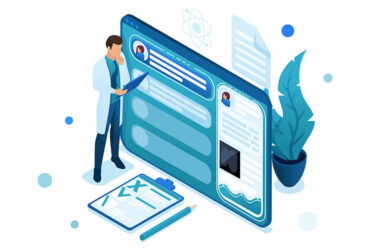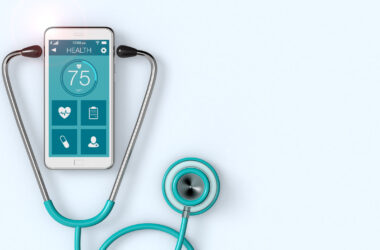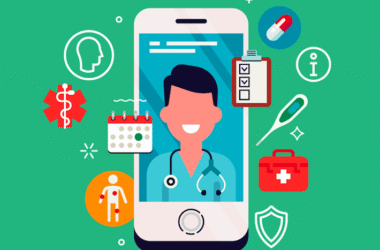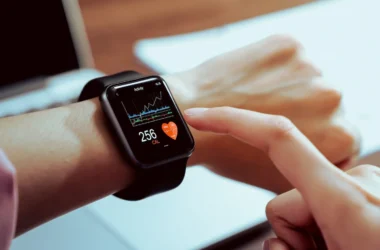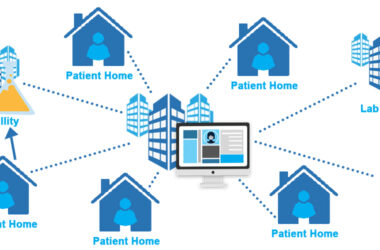The problem of burnout in health professionals has remained a headache to most countries. Long working hours, emotional stress, lack of personnel and pressure by patients and families may exhaust any person even in a short period of time. There is overwork and exhaustion among most health care practitioners, nurses, and other people working in support staff. This may in the long-term lead to mistakes, laxity and serious health conditions among workers.
The artificial intelligence, or AI, can help in several real and practical directions. AI will also give healthcare staff a break to rest as it will take over manual work, analysis of patient data, and give feedback in real-time.
What Is Healthcare Staff Burnout?
Healthcare burnout is a syndrome of prolonged stress and lack of rest among the people. It leaves them exhausted and have no interest in their jobs at all times, being difficult to concentrate. The World Health Organization also argues that burnout is a serious malady that develops when a long term work stress is not addressed appropriately.
The American Medical Association noted that out of the surveyed physicians, 63 percent of the respondents admitted to having at least one occurrence of burnout last year. It is nearly two out of every three of the doctors. The news of another research done by National Academy of Medicine has shown that over 50 percent of all nurses in America are stationed with an issue of burnout. These numbers show that the problem is not trifle and can be neglected.
Why Does Burnout Happen?
Burnout does not happen overnight. It builds up slowly when healthcare workers:
- Work too many hours without rest
- Handle too many patients at once
- Face emotional pain from watching others suffer
- Get very little support from managers
- Do the same repetitive tasks every day
Also, when hospitals and clinics are short on staff, the workers who remain must take on extra work. That leads to more stress and faster burnout.
How Can AI Help Reduce Burnout?

AI cannot replace human care or emotions. But it can help by doing things that do not need human feelings or judgment. These include:
1. Handling Repetitive Tasks
Many healthcare workers spend hours entering notes into computers. These tasks are important, but they are boring and time-consuming. AI tools can write notes by listening to what a doctor says during a visit. This saves time and keeps records up to date.
For example, a report from Accenture showed that AI tools can help save up to 17 percent of a doctor’s time by handling basic paperwork. That’s time doctors can spend resting, speaking with patients, or solving real medical problems.
2. Managing Appointments and Schedules
Nurses and front desk staff often manage appointments and patient check-ins. When things get busy, they can make mistakes or miss important details. AI systems can help by setting up appointments, sending reminders to patients, and updating the schedule without needing human help.
This reduces stress on staff and keeps things running smoothly. One hospital in Boston used AI to manage schedules and saw a 35 percent drop in late or missed appointments.
3. Giving Alerts and Support in Real Time
AI tools can keep track of patient vital signs and send alerts if something goes wrong. Instead of watching every monitor all day, nurses can rely on AI to let them know when a patient needs help. This lets them focus on more important care tasks.
At Mount Sinai Hospital in New York, AI helped cut emergency response time by 26 percent, giving nurses more time and reducing the pressure to watch every monitor all day.
4. Helping with Staffing Decisions
AI can look at data and suggest where staff are most needed. For example, if one floor is getting more patients, AI can send an alert so staff from other areas can help. This makes sure no team is overloaded while others are not busy.
Also, AI tools can predict busy times in advance so that hospitals can plan better and avoid overloading the same group of workers.
5. Providing Mental Health Support
Some AI chatbots and tools are now being tested to check in with staff. They can ask workers how they’re feeling, offer stress tips, or suggest if someone should talk to a real therapist. While these tools do not replace real care, they can give support before things get worse.
One study from Stanford Medicine showed that when AI-based mental health tools were used, reports of stress dropped by 23 percent among hospital staff in just three months.
What Are the Limits of AI in This Area?
Even though AI can help with many jobs, it cannot give comfort, build trust, or make people feel heard in the way another human can. It is also not perfect. AI systems need regular updates and can make mistakes if not set up right. So hospitals should not use AI to avoid hiring more people or skip giving real support.
Also, privacy matters. When AI tools work with patient data, hospitals must make sure all systems follow rules and protect personal health details.
What Can Hospitals Do Next?
Hospitals and clinics can start by looking at where their workers are spending most of their time. If staff are filling out forms for hours every day, that’s a sign to bring in AI support. If many people are calling in sick or quitting, that’s another sign something is wrong.
They can also talk to their staff and ask what tasks they find most stressful or boring. Then, they can choose AI tools that fix those exact issues. This way, the help is focused and real.
Training is also important. Workers need to know how to use the tools and should not feel like the machines are watching them. AI should be seen as a helper, not a threat.
Final Thoughts
Burnout is not only detrimental to healthcare workers, but it also puts patients at risk. Tired workers are more likely to make mistakes, and those mistakes can harm others. AI can help by automating tasks that drain time and energy from staff. It can offer support, reminders, alerts, and smart ways to handle busy times.
Still, AI should not be the only solution. Real changes in hospital culture, fair schedules, mental health support, and hiring enough staff will always matter. But when used the right way, AI can take a load off the shoulders of people who give care every day.
Top of Form
Bottom of Form

